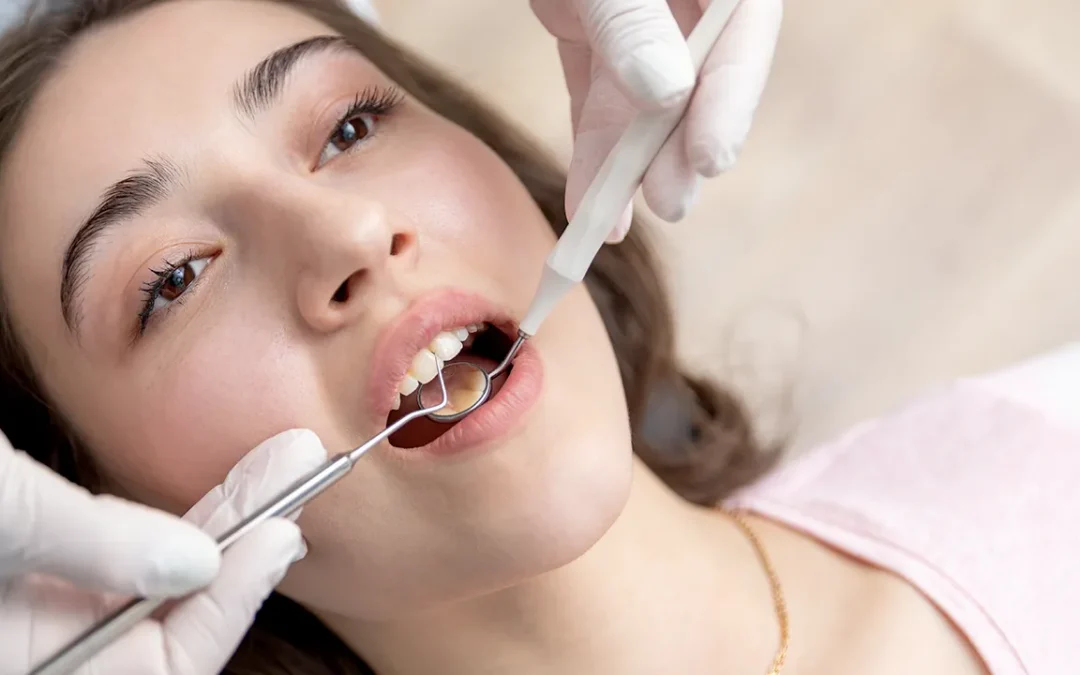When most people think of oral health, they focus on teeth and gums. But did you know that your mouth is closely connected to the rest of your body? Poor oral health doesn’t just cause cavities or gum disease—it can also contribute to serious health conditions affecting your heart, brain, and overall wellbeing.
1. Poor oral health increases the risk of chronic diseases
Long-term poor oral hygiene has been associated with several chronic diseases, including:
✔ Cardiovascular disease: Oral bacteria can enter the bloodstream, causing inflammation and increasing the risk of heart disease and stroke.
✔ Diabetes: Gum disease can make it harder to control blood sugar, while diabetes can worsen oral infections.
✔ Respiratory diseases: Harmful oral bacteria can be inhaled into the lungs, contributing to conditions like aspiration pneumonia.
✔ Dementia and Alzheimer’s disease: Studies suggest that oral bacteria can travel to the brain, triggering inflammation and potentially playing a role in neurodegenerative diseases.
✔ Kidney disease, obesity, and even certain cancers: The systemic inflammation caused by oral infections has been linked to a variety of serious health conditions.
New research is moving beyond simply “linking” oral health to these conditions—scientists are beginning to uncover potential causative relationships. One theory suggests that oral bacteria may interfere with protein folding, a critical biological process. Misfolded proteins have been implicated in diseases like Alzheimer’s, Parkinson’s, and certain cancers.
2. Poor oral health can lead to functional disabilities
When people think of disabilities, they often picture mobility issues or hearing loss. However, losing the ability to chew properly due to missing teeth or gum disease is also a form of disability.
✔ Difficulty eating: Missing molars or painful infections can limit the types of food you can consume, leading to malnutrition.
✔ Speech difficulties: Oral issues can impact how you pronounce words, affecting confidence and communication.
✔ Chronic pain: Untreated cavities, infections, and jaw disorders can lead to persistent pain that disrupts daily life.
✔ Reduced productivity: Oral discomfort can cause missed workdays, lack of focus, and even emotional distress.

3. Oral and general health share common risk factors
Many of the lifestyle habits that contribute to oral diseases are the same ones that increase the risk of other health problems, including:
- Smoking: A major cause of gum disease, oral cancer, and respiratory illnesses.
- Alcohol consumption: Increases the risk of oral cancer and contributes to dry mouth.
- Poor diet: High sugar intake fuels cavities and gum disease, while a lack of nutrients weakens the immune system.
- Chronic stress: Raises inflammation levels, weakens immunity, and can contribute to teeth grinding (bruxism), leading to tooth damage.
Oral infections can also create a domino effect. For example, an infected tooth that makes chewing painful could lead to poor nutrition, which weakens the immune system, making it harder to fight infections.
4. Chronic diseases can worsen oral health
While poor oral health can contribute to general diseases, the reverse is also true—certain medical conditions can increase the risk of oral problems:
- Diabetes: High blood sugar leads to a dry mouth and an increased risk of cavities and gum disease.
- Medications: Some drugs cause dry mouth, reducing saliva’s protective effects and increasing decay risks.
- Chronic stress and anxiety: Linked to teeth grinding, jaw clenching, and even TMJ disorders.
If left unchecked, these conditions create a vicious cycle where poor health worsens oral health, which in turn worsens overall health.
Take control of your oral and general health
The good news? By taking care of your mouth, you’re also taking care of your body. Here’s how you can protect both your oral and overall health:
✔ Brush and floss daily: Keep harmful bacteria in check and prevent gum disease.
✔ Eat a balanced diet: Support your immune system with nutrient-rich foods.
✔ Avoid smoking and excessive alcohol: Reduce inflammation and disease risk.
✔ Manage stress: Protect against grinding, clenching, and immune system suppression.
✔ Visit your dentist regularly: Catch issues early before they escalate into major health concerns.
With excellent oral hygiene, a healthy diet, and regular dental checkups, you’re not just protecting your smile—you’re supporting your whole body’s health and wellbeing. A healthy mouth means a healthier you!
About the author
Dr. Sonny Lee is the principal dentist at Leeming Dental, renowned for his expertise in preventative care, advanced diagnostics, and restorative treatments. He takes a patient-centred approach, combining years of experience with the latest technology to deliver high-quality, personalised care.
Dr. Sonny is passionate about early detection and disease prevention, utilising cutting-edge diagnostics like Oral Pathogen Testing to identify harmful bacteria and reduce the risk of both oral and systemic health issues. Committed to patient education, he empowers individuals with the knowledge and tools needed to achieve long-term oral wellness and overall well-being.


